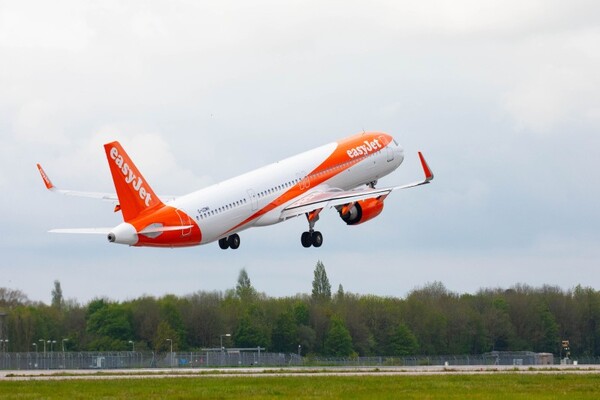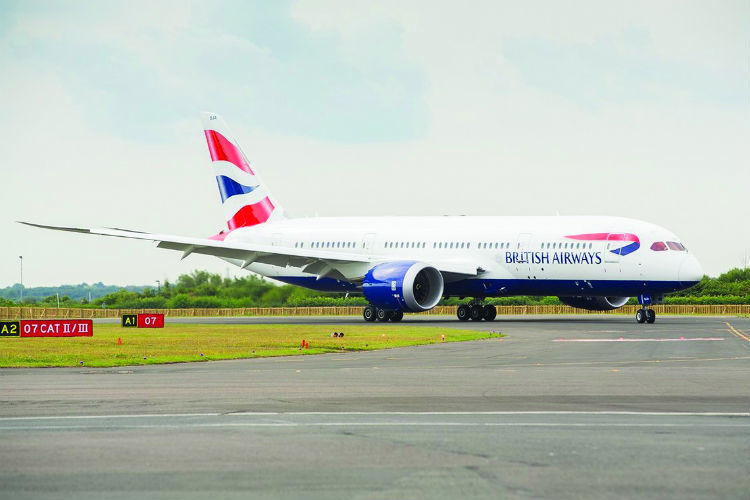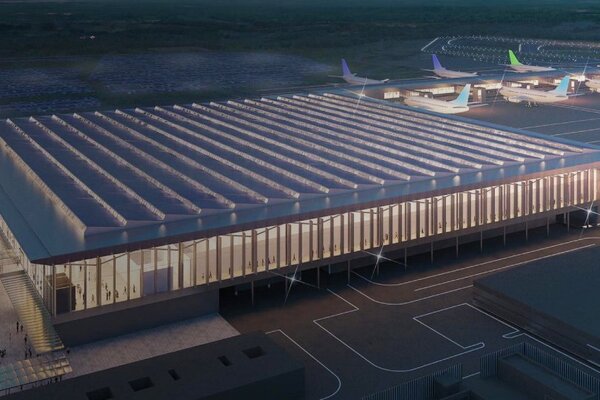EasyJet places $20 billion order for new Airbus aircraft
 James Chapple
James ChappleEasyJet has placed a US $20 billion order for new aircraft which it says will allow it to renew its fleet and support its ambitious new "medium-term" growth plans.
The airline on Thursday (12 October) confirmed it had added a further 157 aircraft – 56 Airbus A320neos and 101 Airbus A321neos – to its already substantial order book, which currently runs to 158 Airbus A320neo family aircraft. These are due for delivery by the end of easyJet’s 2029 full-year.
This new aircraft order, which doubles easyJet’s order book with Airbus, will be delivered between easyJet’s 2029 and 2034 full-years. In addition, easyJet has also secured purchase rights on a further 100 aircraft which, if exercised in full, could see the airline take delivery of more than 400 new aircraft over the coming years.
Elsewhere, easyJet has exercised conversion rights on a portion of its current orders to convert 35 Airbus A320neos for larger A321neos, giving it scope to deploy aircraft with more seats on profitable or capacity-constrained routes.
EasyJet said this, combined with its 100 options, would help it deliver vital fuel and carbon efficiencies, and reduce operating costs per seat.
Both the conversion and the proposed purchase – which includes options for a further 100 aircraft – will be put to shareholders, with easyJet estimating a near US $20 billion commitment when combining all of its new fleet renewal proposals.
"This will enable easyJet’s fleet modernisation and growth to continue beyond 2028 while providing substantial benefits including cost efficiencies and sustainability improvements," said chief executive Johan Lundgren.
The airline explained its rationale in a full-year trading update on Thursday (12 October). "Delivery slots for narrow-body aircraft with circa 200 seats are very limited until at least 2029 from both Airbus and Boeing," said easyJet. "EasyJet anticipates that this limitation will extend into 2030 and beyond within the next year.
"By placing an order now, easyJet ensures a supply of future delivery slots between FY29 and FY34 to retain its current scale through replacing aircraft leaving the fleet and this enables easyJet to execute its disciplined growth strategy."
Carbon costs factor
EasyJet said its fleet renewal plans would reduce the average age of its fleet from 9.9 years this year to 8.4 years in a decade’s time, with all new aircraft delivering between 13% and 30% fuel burn efficiency, depending on the aircraft they replace.
Critically, easyJet believes the order will allow it to stay ahead of market trends as well as regulatory trends, which it anticipates will be shaped by global political and commercial action on carbon.
"The costs of carbon emissions are expected to increase over the coming years, and increased fuel efficiency will lead to a proportional reduction in carbon emissions," said the carrier. "Additionally, some airports provide discounted fees for new-generation aircraft, further enhancing the economic benefits."
The orders will also allow easyJet to deploy larger 235-seat A321neos on high-demand or slot-constrained routes, and to grow at airports where there are slot constraints.
Sign up for weekday travel news and analysis straight to your inbox

James Chapple
Supplier Directory
Find contacts for 260+ travel suppliers. Type name, company or destination.














